Notre Dame Catholic Sixth Form College is the only Catholic sixth form in Leeds and was founded by the Sisters of Notre Dame in 1898 to provide education for the disadvantaged and poor in the community. It is with immense pride that we share this heritage with all our staff and students.
The Sisters of Notre Dame first came to England in 1844, 40 years after the establishment of the order. In August 1898 they arrived in Leeds to take charge of the nearby schools and to help train teachers.
They arrived at Leeds Rail Station with no one to meet them and found a horse drawn cab to take them to St Mark's Avenue. By knocking on the doors of houses they eventually found the one that was theirs but had no way of getting in. The cabby, at the request of the Sister superior, used his wooden leg to break down the door.
Despite this inauspicious beginning, the sisters were ready to open the schools within a month. October 12th 1905 saw the formal opening of the newly built Notre Dame Collegiate School. IN 1929 the newly built chapel was officially opened, dedicated to the Sacred Heart and Our Lady of the Angels. The stained glass windows designed by Harry Clarke were completed in 1930. Each window represents part of the story of Our Lady.
In 1905, there were 7 teachers and 75 students. Over time the school progressed from a collegiate school, to a grammar and then a comprehensive. IN the reorganisation of Catholic education in Leeds in 1989, it became Notre Dame Catholic Sixth Form College.
Although many of the buildings have changed, some of the tradition names have remained, for example the Trinity Building and Cuvilly Building. All the other buildings are named after saints or role models to exemplify the key virtues we aspire to. This is because part of the story of Notre Dame - from its beginning - is the vision that education is part of a bigger picture.
To teach the students what they need for life, we not only offer subjects for study but also a rounded education for the whole person. This supports all our students to be the best they can be, to be role models and servant leaders in their communities - to be the saints of the 21st century. This siters came to Leeds in Faith, Hope and Love, and we continue their work.
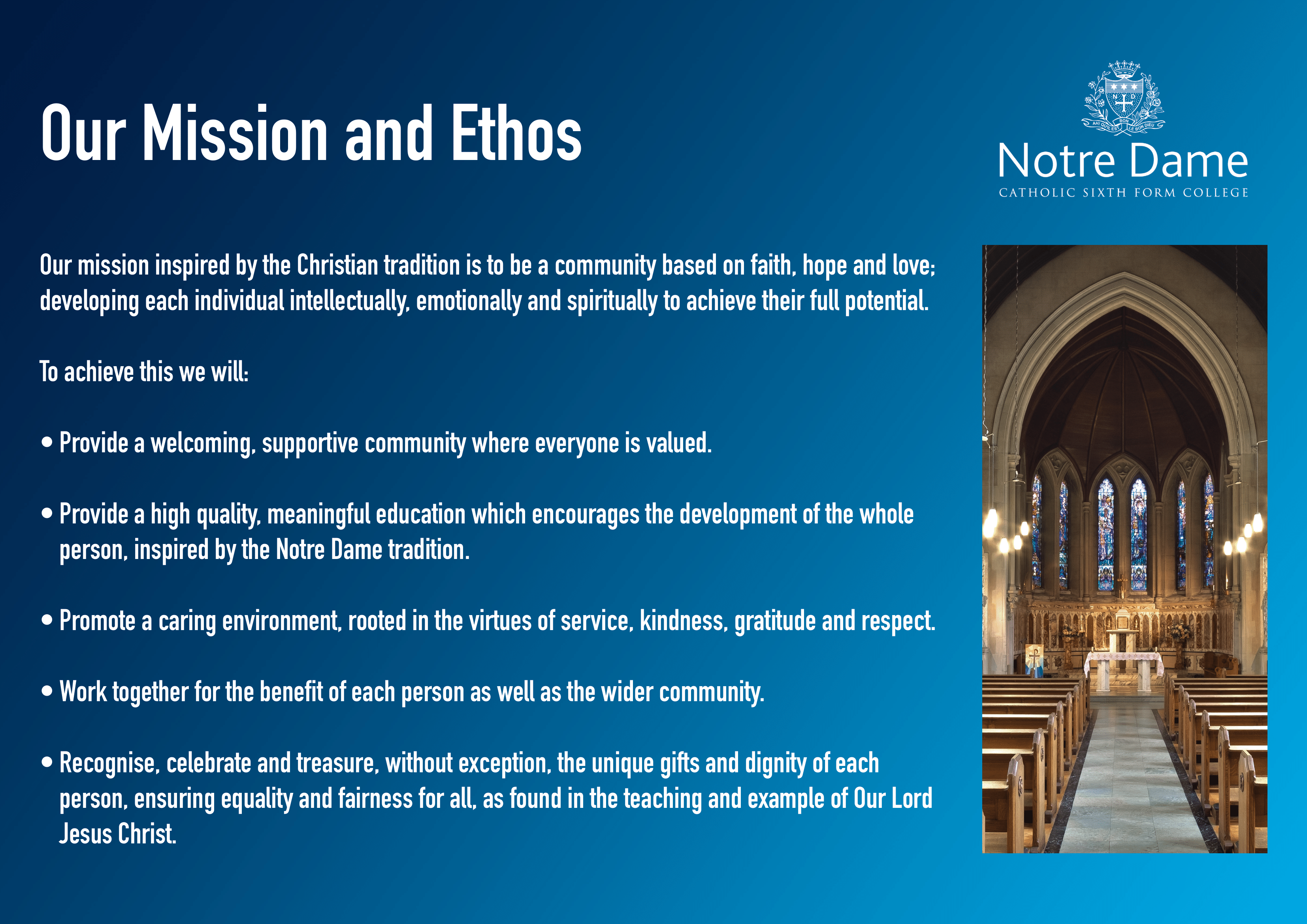
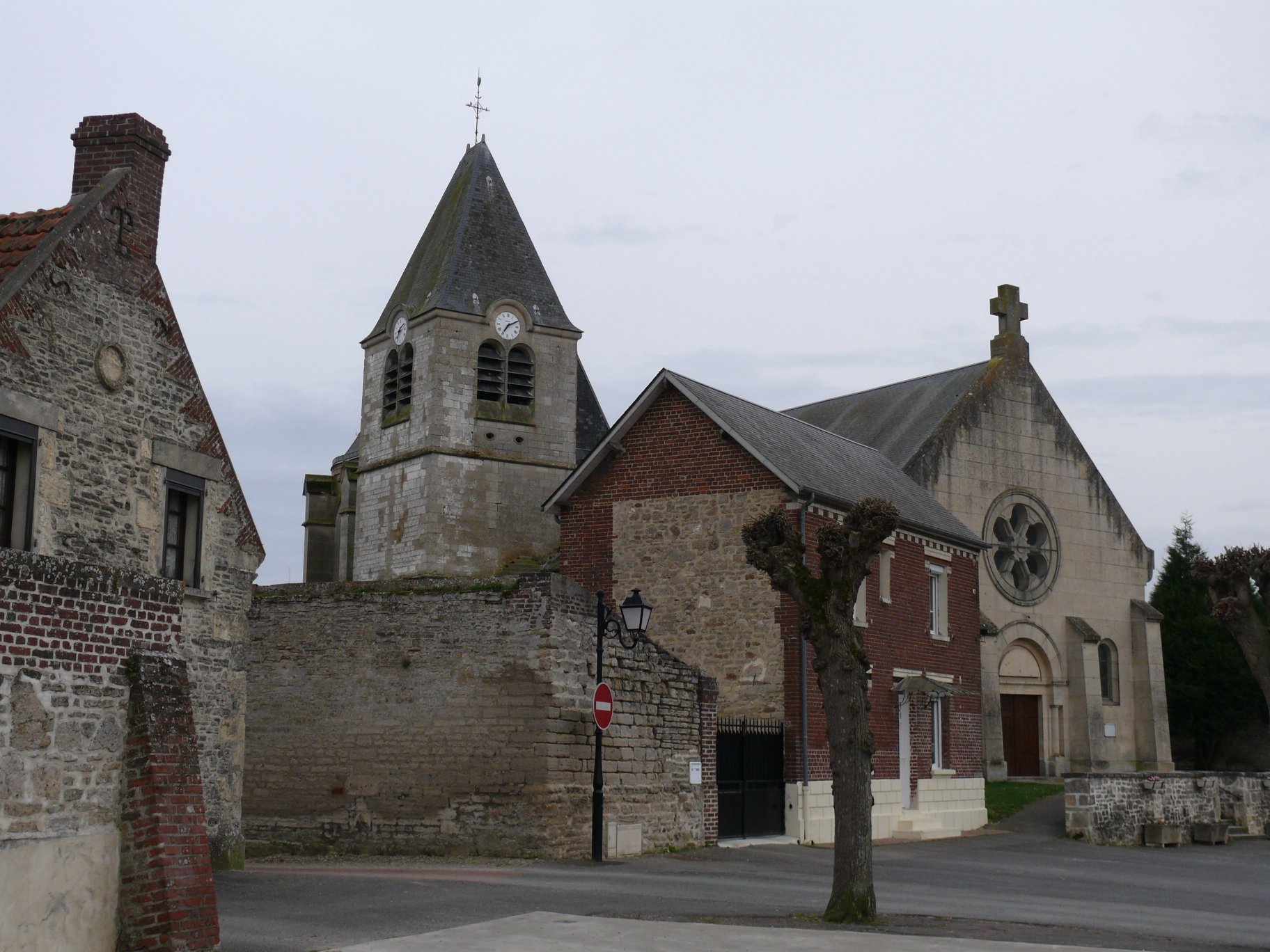
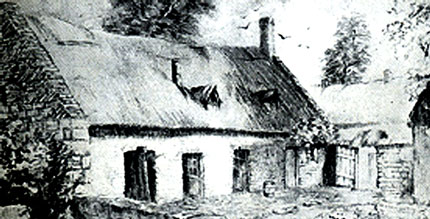
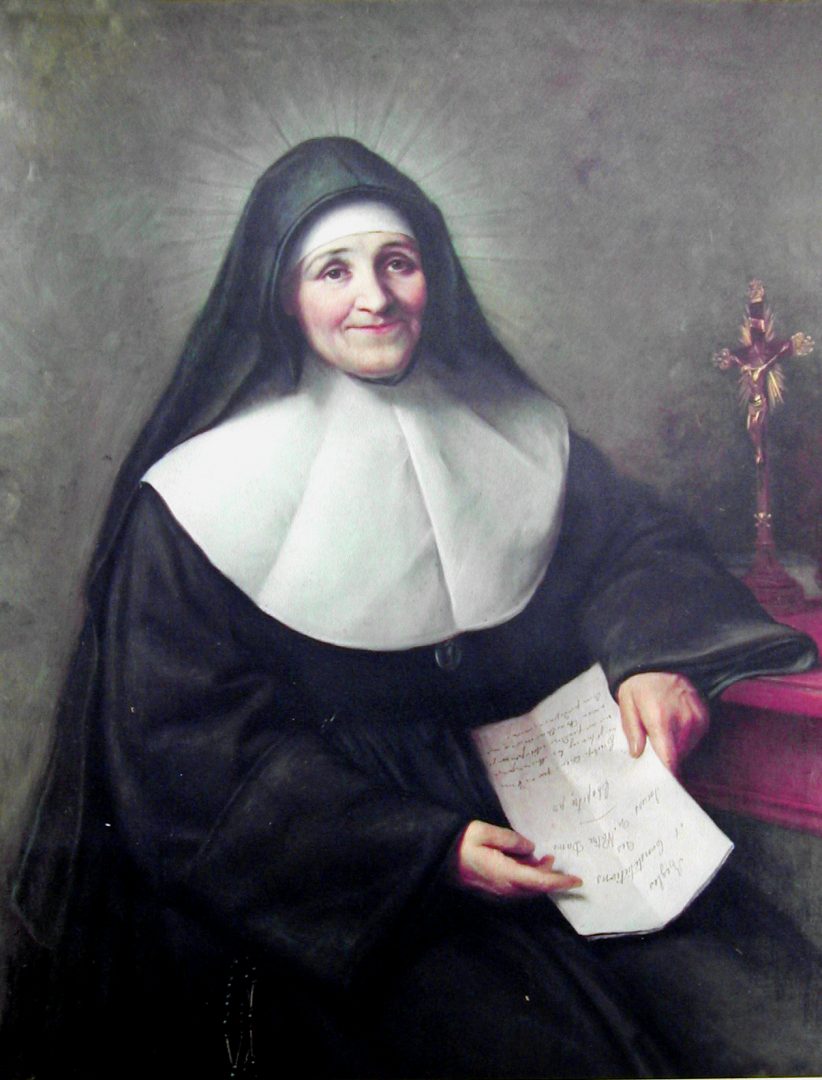



 Website By Rejuvenate Digital
Website By Rejuvenate Digital